More about: Radiohead
'Burn The Witch'
With the skittering rhythms of The King Of Limbs, but laden with strings and the full-bodied feeling that was so beloved on In Rainbows, 'Burn The Witch' picks up where 'Spectre' left off in delivering something so utterly complete - an elegiac, swelling and cinematic gem.
It remains menacingly playful while dripping with dread, warning of the 'low-flying panic attack' that comes from groupthink propaganda from on high - bedded atop a soundtrack that's sumptuous but dark all at once.
'Daydreaming'
An atmospheric and minimalist work of cinematic grace, in a similar vein to the more subtle moments of Amnesiac, albeit with a whole lot more space, colour and life - 'Daydreaming'plays out onto a sparse canvas - the scope of which, The King Of Limbs just wouldn't allow. This is a breathtakingly outpouring of lushness.
"Dreamers, they never learn - they never learn." Brad Pitt once compared Thom Yorke's lyrics to the work of Kafka and Samuel Beckett, and by this track alone you couldn't disagree with that. Here he paints a soulful, anxiety-soaked but ultimately real landscape of modern life.
'Decks Dark'
'A work of art' is how collaborator Stanley Donwood described this ninth record from Radiohead. The only way that anyone can create art above everything else, is to outdo yourself. While 'Decks Dark' simmers along with the raw-nerved intimacy that you've long come to love Radiohead for, it floats along with so many nuances that the band have never expressed. With elements of the operatic so perfectly controlled, it's sombre but sublime.
'Desert Island Disk'
An acoustic-led cousin of In Rainbows' 'Faust Arp', albeit driven by a soulful psychedelic backing. Absolutely gorgeous.
'Ful Stop'
An ominous brood of bewitching drums and twisted guitar sounds that slowly builds into an understated sci-fi, horrorshow nightmare, 'Ful Stop' flirts wth kraut-rock menace, and again - it's a refreshing surprise to realise this is an avenue they've never wandered down before. But don't think for a second that this means that it's stoic and clinical, as it soon blooms with that Radiohead majesty, reaching a heavenly climax - a peak they've not reached since 'Weird Fishes'.

'Glass Eyes'
A waterfall of opulence flows as the band fully allow the warmth of their romantic side to overshadow their darkness on this utterly gorgeous rush of motion picture splendour.
'Identikit'
Radiohead are a band renowned for reworking and recycling numbers tried and tested on the road. Hell, it took over a decade for the band to finesse 'Big Ideas (Don't Get Any)' into the now staple 'Nude' that we found on 'In Rainbows'. But while that process was often an act of reduction as we found when they boiled down the grace of 'Videotape' and 'Lotus Flower', the road-tested 'Identikit' is here allowed a lot more meat to the bones - pretty perfectly reflecting all that's great about latter day Radiohead: a haunted paranoia, emphasised by skittering claustrophobic beats, playful guitar, a sinister refrain of synths, one of hell of a stadium chorus in 'BROKEN HEARTS, MAKE IT RAIN'. All wrapped in an aching melancholy, but lifted in a new way with evermore heavenly backing and new elements.
'The Numbers'
Kicking off with the same spirit and rolling rhythm as 'Go To Sleep', but this time given the freedom to wonder into a starry-eyed, celestial ballet. Again, soaked in strings and oh so sumptuous.

'Present Tense'
Another road-tested fan favourite, 'Present Tense' is again refreshingly given far more space to breathe - with echoes of 'Reckoner' but with more flourishes of colour to cover up the greys, as Yorke mournfully squares up to his existential plight with unflinching honesty: "This dance is like a weapon of self-defence against the present tense."
'Tinker Tailor Soldier Sailor Rich Man Poor Man Beggar Thief'
Like 'Spectre', another utterly magnificent piece of sprawling cinematic grace. "All you have to do is say yes," harps Yorke, and indeed, it seems that Radiohead have burst through any ceiling that may have been restricting them, and they're now reaching unflinchingly towards the stars.
'True Love Waits'
An unquestionable staple as an often played and much-beloved classic among true Radiohead fans, but never properly committed to record, 'True Love Waits' heartbreaking outpouring of unconditional but hopeless devotion has blossomed over time - here now manifested as a love song in its purest form: direct, straight from the heart, totally devastating and utterly perfect. Like 'Videotape', the ultimate album closer, as Yorke concludes that our hearts may never find themselves where they truly deserve to be: 'true love lives in haunted attics, and true love lives on lollipops and crisps - just don't leave'.
Verdict:
Radiohead's constant evolution comes not only from their restless creativity, but is driven by the fact that they're naturally in a state of constant flux. Radiohead have stayed on top of their game because not since The Beatles has a band covered so much terrain over their career. You could say that each album is a violent reaction against its predecessor, but essentially after ever record, they reduce themselves to rubble and start building again. That's why there are 'eras' of Radiohead, because they become a new band on every record. But every evolution is essential, and never contrived.
While The King Of Limbs was a fairly skeletal affair from a band who admit that they were 'in transition', A Moon Shaped Pool sees the band land in their assumed destination - blooming around the bare roots that led them here, and breathing new air and life into the haunted claustrophobia of their last record. While there are echoes of all the highlights from across their legacy, album No.9 accentuates them all with an artfully controlled grandeur - with the finer elements adding warmth to some thoroughly lonely themes and aesthetics.
For a band who have already come to both defy and define genre at every turn, having torn up the map of where music should lead them, Radiohead now take a turn down a previously untrodden, sumptuous garden path. Not that they have anything left to prove, but A Moon Shaped Pool is proof that they still have so much give.
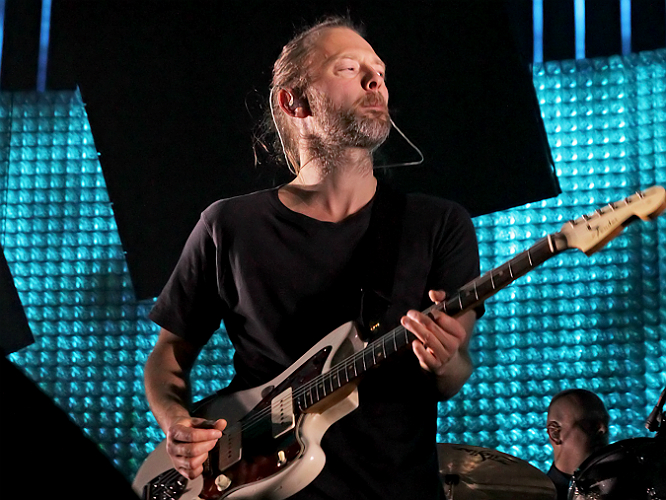
It's considered an occupational hazard ranking the Radiohead albums. This is because, as well as dedicated, Radiohead fans are fervently aggressive. Though, we think this is a good thing, it's that passion that fuels the debates that make it so much fun to be a lover of music and, more specifically, Radiohead. So, with a plea of mercy, here are the Radiohead albums ranked from worst to best.
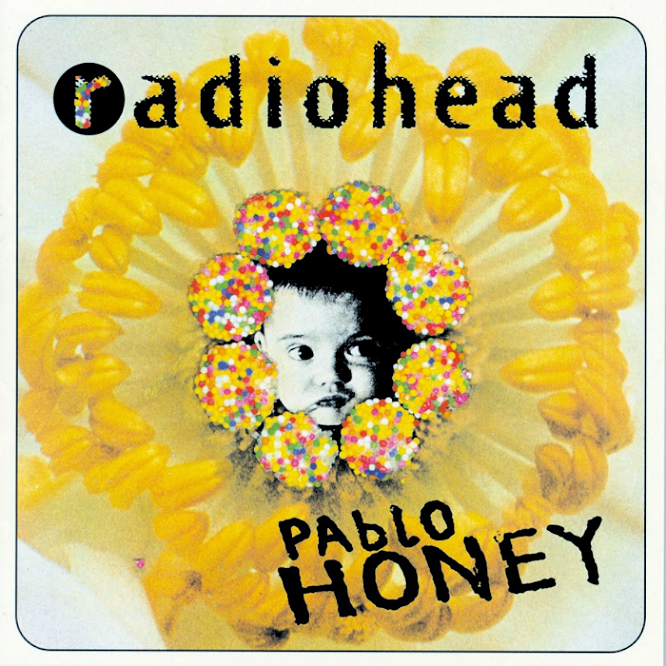
8) Pablo Honey: People give a lot of stick to Radiohead's 1993 debut album and while it's not deserving of the flack it gets, when pitted against the higher ranks, it pales in comparison. Adolescent and explorative, Pablo Honey represents a worldwide band-to-be finding their feet - not bad going since 'Creep' is still cited as an era defining single. And while, for many it's considered classic, when you examine the mass transformation Radiohead underwent from that point, the record seems to just simmer as conventional.
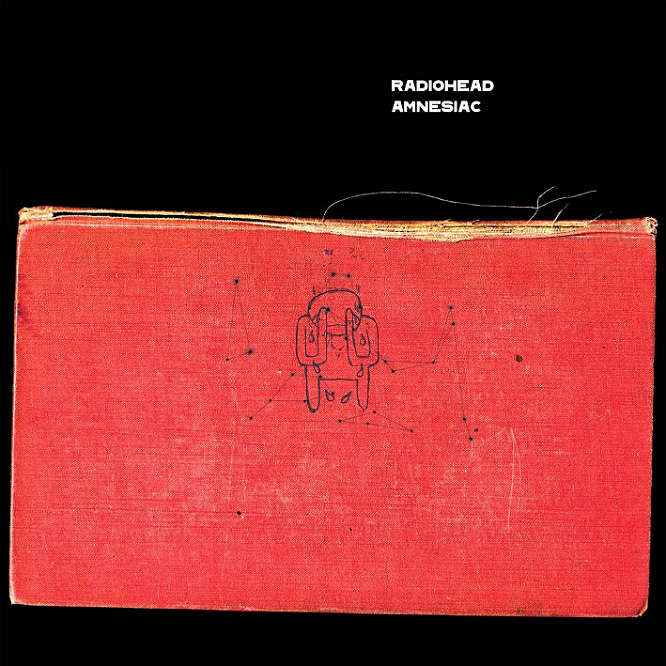
7) Amnesiac: Speaking of 'Pyramid Song', Thom Yorke said: "It's the best thing we've committed to tape, ever". An arguable statement that derives from an arguable album. Radiohead's 2001 record was recorded during the same sessions as Kid A and released a year later and, because of that fact, it's pegged as more of a B side collection. The industrial starkness, bar 'Morning Bell', sets it apart from Kid A but fails to achieve the same depth and therefore reverence as it's predecessor.
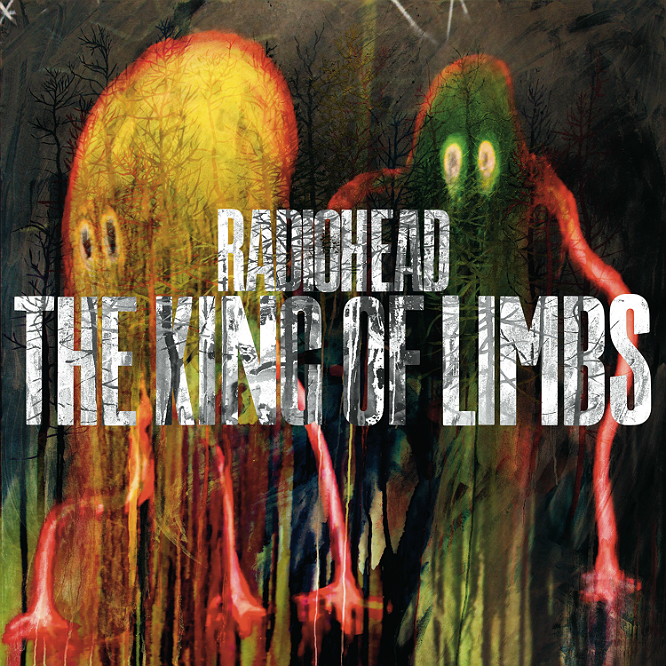
6) The King of Limbs: The Radiohead album for the weirdos. King of Limbs untethered Radiohead from their alternative-rock crown of thorns and dived into the abstract and endlessly expansive experimentation. The album is a marvel of production and technical achievement but trades tactility for distance and intellectualism. King of Limbs is undoubtedly a fantastic sonic expedition but feels spiritless at times like shadows negotiating the dark, there's a definite presence, you just can't pin it down.
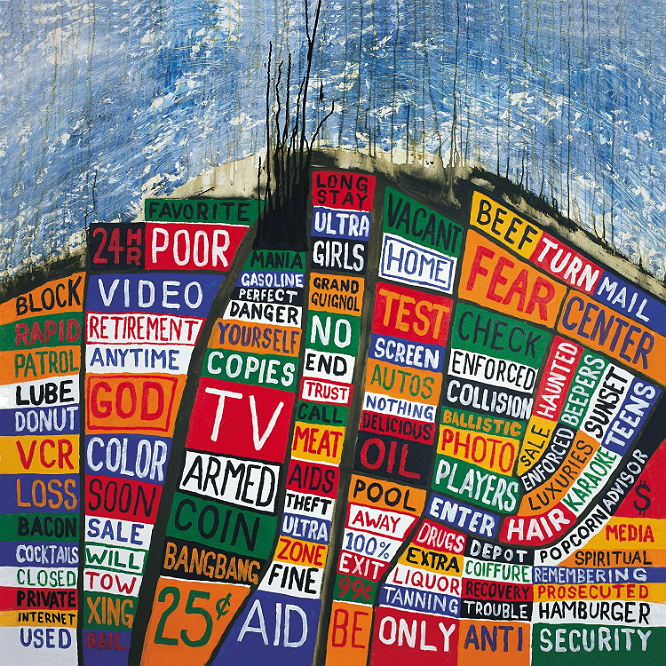
5) Hail to the Thief: An album that thrives in the face of imbalance and mania. Everyone hears different things for that reason. For some, Hail will always be a 'guitar record' because of tracks like 'There There', whereas others appreciate the more subtle electronic compositions like 'Sit Down. Stand Up'. We think it showcases Radiohead's musical diversity across the board as well Yorke dipping into thematics of love and politics - another word for the two-week recorded album would be schizophrenic.
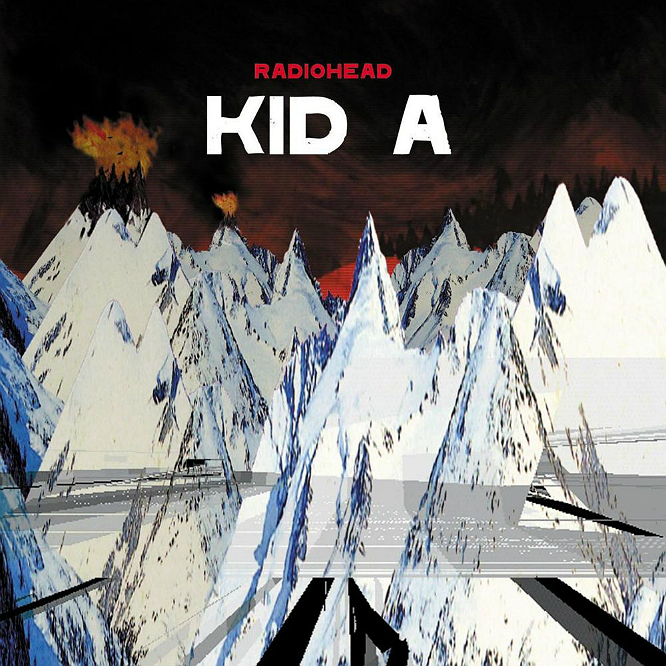
4) Kid A: This is where the leaderboard, if it wasn't already, becomes treacherous. Moving forward, the albums become considered masterpieces. Kid A is, without a doubt, a masterpiece. Built from the ashes of an exhausted Yorke after touring OK Computer relentlessly, Kid A pushed Radiohead into uncharted territory, turning their hand to electronic and classically inspired pieces. The crystalline peaks on the album's cover capture the essence, it's cold, distant and has an infinite staying power - the sounds of Kid A will continue to echo as long as rock music prevails.
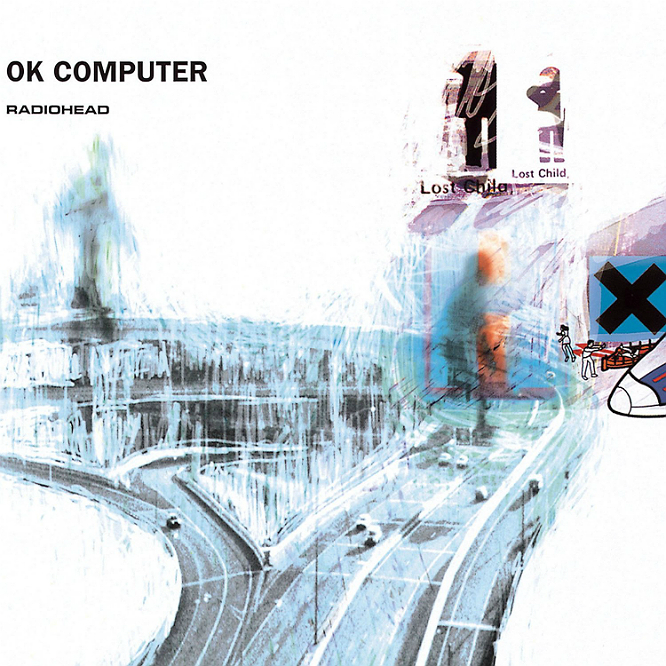
3) OK Computer: The only way to discuss OK Computer honestly is to cast your mind back to the first time you heard, the first time 'Airbag' inflated your ears with it's dissonant majesty. At this point, OK has been taken apart, put back together and ranked so vigorously, the essence of the record has become faded for some. Take a day to remind yourself of the overwhelming amount of legacy this record has created, it's literally prophetic. Between the whirring sonics, inexplicable aesthetic and generation defining songwriting, OK Computer will always be Radiohead's centrepiece.
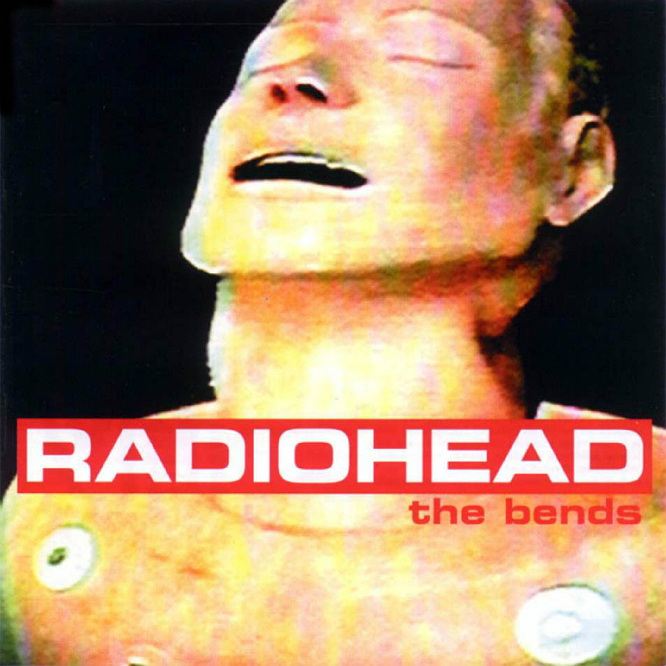
2) The Bends: An all-encompassing rock record from the band that "can't just do rock records". The Bends symbolises Radiohead reaching a creative peak in one range of mountains that they set to and continue to conquer. It feels organic and visceral throughout and never compromises sensitivity for the outlandish. Radiohead dug deep only two records in and transformed into a personality band; a band that reflected their characters in their musicianship - a singular facet that enabled them to dare to have the career we admire to this day.

1) In Rainbows: Creativity is an never-ending concept, it's what makes the existence of it so abstract. In Rainbows is creativity in singularity form. Radiohead have always transcended convention but In Rainbows trifled with sounds of celestial proportions. It rolls up the emotional spectrum and distributes it out one track at a time. We spoke before of Radiohead 'the personality band' and we truly believe In Rainbows is the topography of their souls. It's complex and insatiable but emotionally resonant, an otherworldly record created for the ears of this world - that's the Radiohead way.
More about: Radiohead


